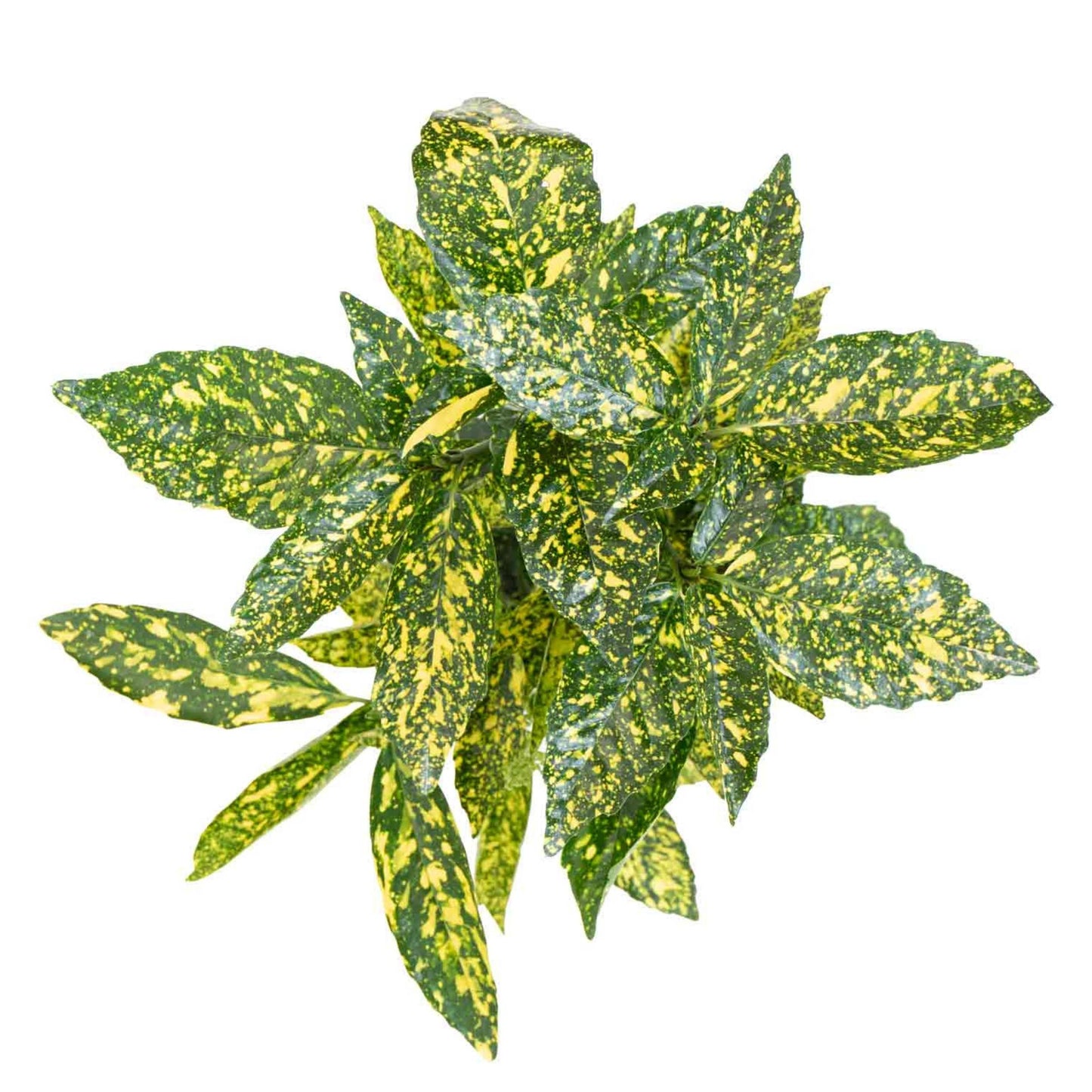Gold Dust Plant
Aucuba japonica variegated
€14,99
Sale price
€14,99
Unit price
per
Sale
Sold out
Tax included.
Aucuba japonica variegata, also known as Gold Dust Plant or Spotted Laurel, is a hardy, easy-care plant prized for its dark green leaves speckled with gold. It’s a great addition to shade gardens or low-light indoor gardens.
Choose your Pot
Take a look
Couldn't load pickup availability
SKU:5600449805928
🔒
Compra segura
📦
Envio rápido e seguro
📞
Apoio ao Cliente
🌱
Garantia de Entrega Perfeita
Care
Care
Luminosity
Watering
Toxicity
Tip
Tip
Fertilizing Aucuba japonica 1 to 2 times a month during spring and summer will keep it growing healthy and lush.
About Gold Dust Plant
About Gold Dust Plant










